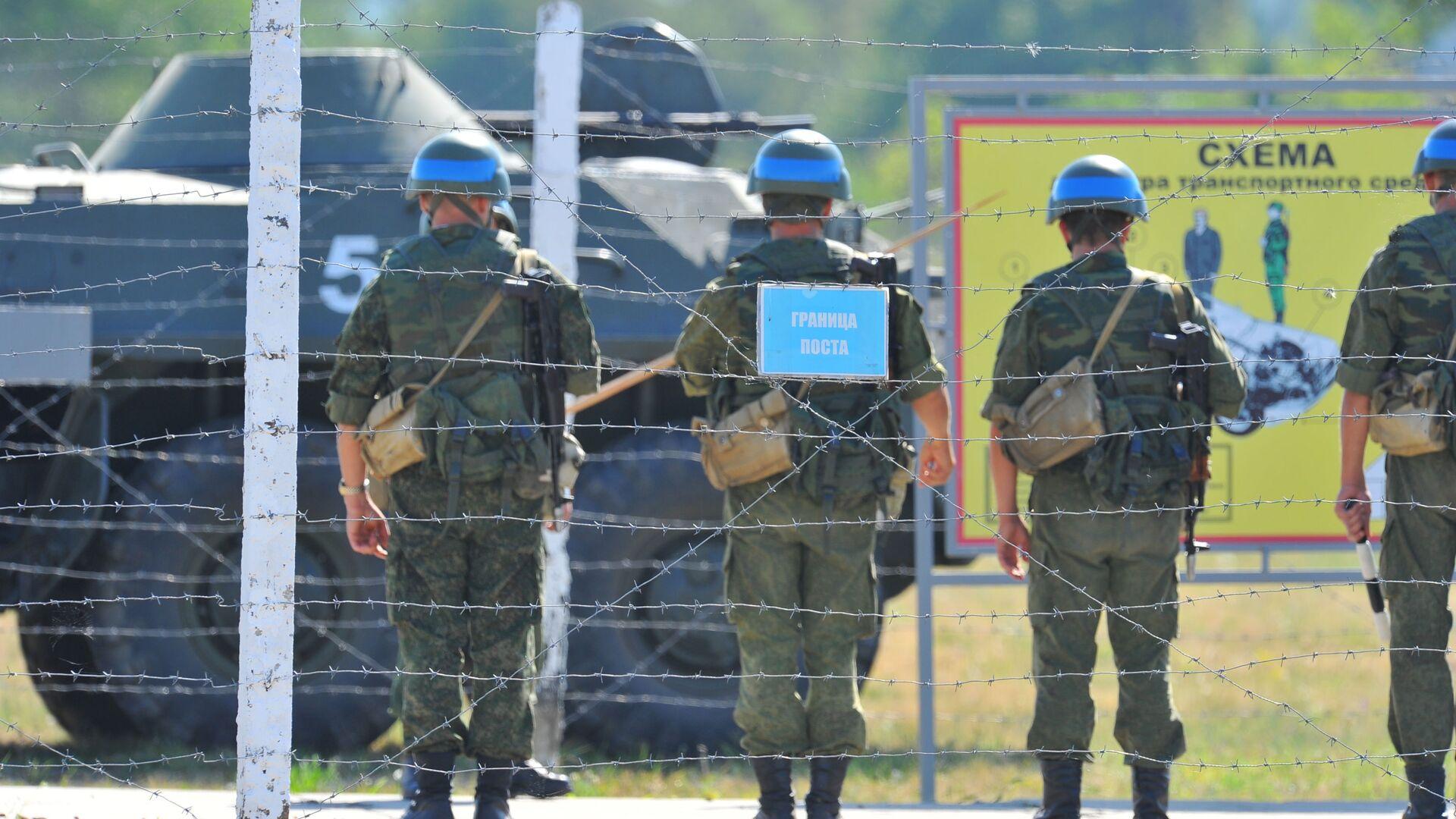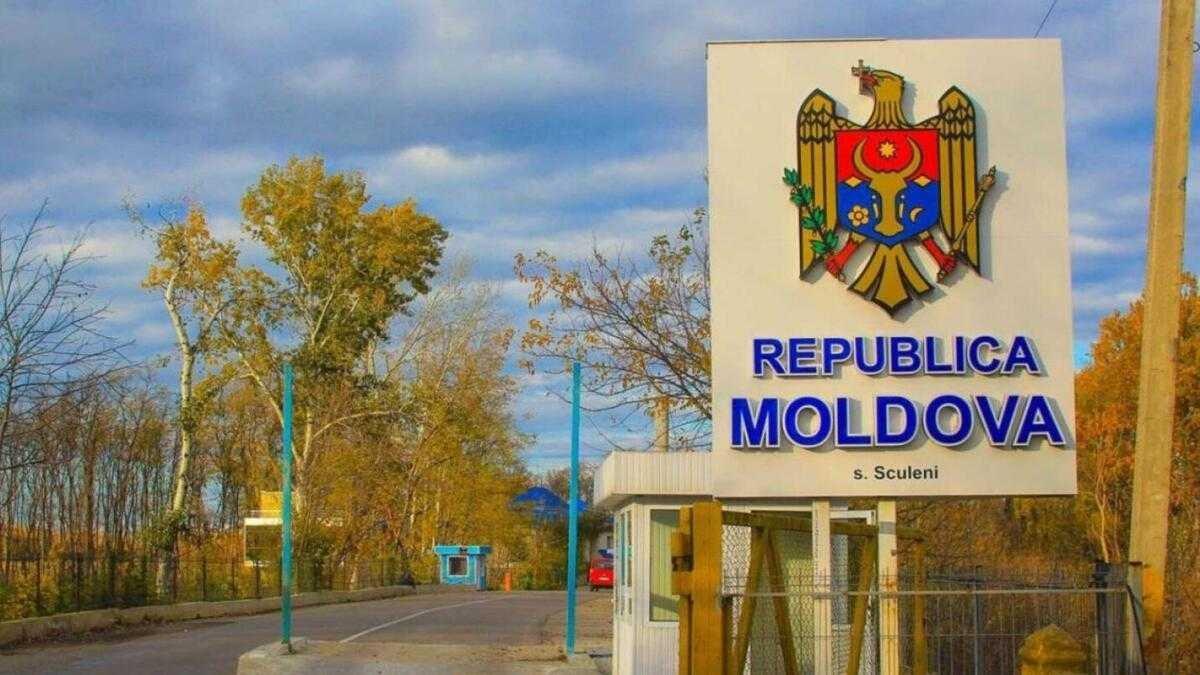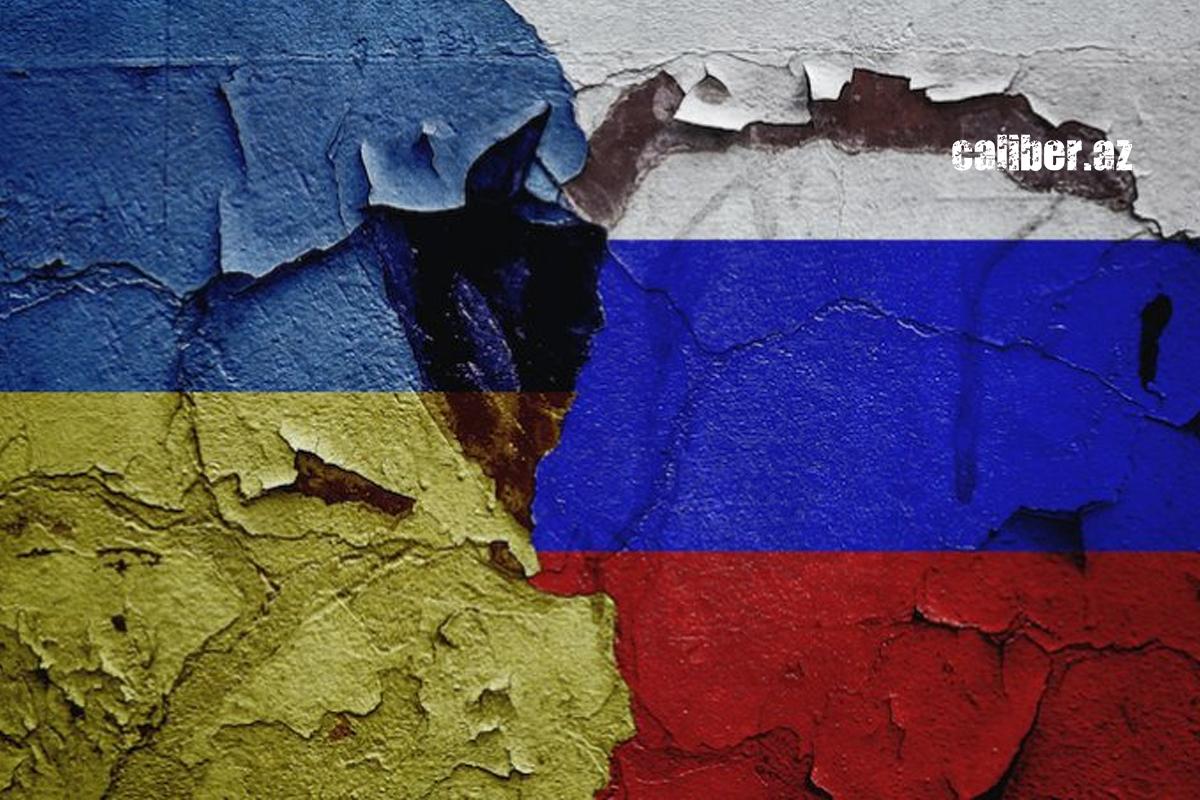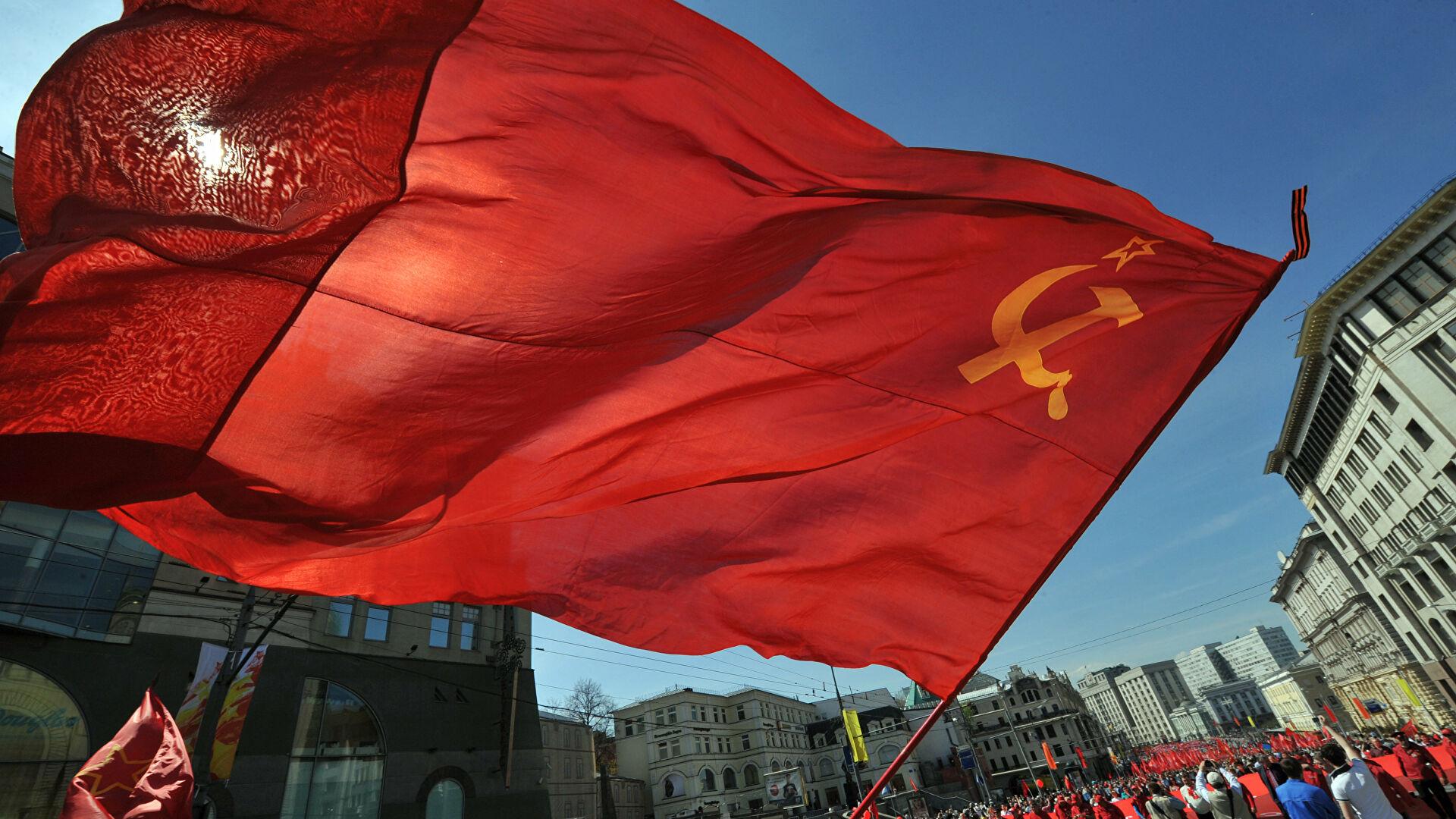Russian-Ukrainian war may expand to Moldova
Discussion of details of Transnistria conflict with Sergey Bogdan
ANALYTICS 02 May 2022 - 13:33
| Serhey Bohdan Caliber.Az |
This week began with a series of loud provocations of unknown forces in the Moldovan Transnistria. Immediately there were speculations that it was Russia trying to create a pretext to invade Moldova. And by the end of the week, Igor Girkin-Strelkov, the notorious imperial activist who started the 2014 war in eastern Ukraine, announced an impending Ukrainian operation to take control of Transnistria.
Any evidence of war?

On April 25, grenade launchers were fired at the building of the "ministry of state security" of the "Transnistrian Moldovan Republic" (TMR) in Tiraspol. On April 26, transmitter antennas used to retransmit radio signals from Russia were blown up, and there were attacks on a military airfield in Tiraspol and a Russian military unit in a populated area. No one was killed.
The day before, the deputy commander of the Central Military District of the Russian Armed Forces, Rustam Minnekayev, announced that the goal of the second stage of the Russian invasion was a land corridor to Crimea and access to Transnistria. Indeed, simultaneously with incidents in Transnistria, on April 26 and April 27, the Russian army damaged a bridge west of Odessa, important for the defence of the region, through which the advance into Transnistria is to take place. In addition, Kyiv said that Russian troops in Transnistria were put on alert and offered to help eliminate the "TMR".
The very possibility of expanding the war zone to Moldova has long been discussed. Even on the eve of Russia's invasion of Ukraine, it was said that Russian troops in Transnistria would be involved in a possible invasion. A blow in the direction of Moldova is also indicated on the notorious "Lukashenko map", which Minsk "leaked", probably in a desperate attempt to prevent the expansion of the war.
Is it Russia?
At first glance, the provocations in Transnistria are similar to the provocations that took place in February in the so-called "DPR/LPR", which became the pretext for the attack on Ukraine. But there are important differences. First of all, the Transnistrian separatists did not unfold the recent incidents. The leadership of the separatists was strikingly silent on the subject of the Russian invasion even before that. They were silent in spite of their radical great-power beliefs and the policy of unification of the separatist republic with the Russian one!
However, even a cursory glance at the disposition explains a lot. Only about 1,500 Russian soldiers are deployed to the Moldovan territory and they are guarding the ammunition depot in Kolbasna. It is considered to be one of the largest in Eastern Europe, and the amount of ammunition is not known exactly, it is said to be 20,000 tons give or take a couple of thousand.
It is known only that the majority of them cannot be removed because of the expiration of all terms and explosiveness, and in case of detonation, the explosive power would be comparable to the explosion of a 10 kiloton nuclear bomb (like the one dropped on Hiroshima in 1945). In general, Russian troops are not just scarce, they are sitting on a powder keg.
The Russian side also cannot help its troops in Moldova with a strike from outside. At the beginning of March, when the capture of Odessa, an hour's drive from the Moldovan border, was expected, this scenario was seriously discussed and not without reason. But now the scenario has changed drastically. The Russian forces are clearly bogged down near Kherson, and the landing of troops in Odessa after the flagship of the Russian Black Sea Fleet was sunk by Ukrainian missiles is just out of question.
Of course, irrational versions should not be completely ruled out. After all, the Kremlin decided to attack Ukraine even despite the seemingly insufficient forces, which indeed turned out to be insufficient!
...or is it Moldova?

Strikingly, Moldova's pro-Western government and the pro-Russian separatists in Transnistria are united in their desire to stop the move toward war. The separatist republic, despite its pro-Russian character, is far from Russia, and the political and economic basis of its regime is clearly not conducive to being involved in a war. Experts on the region constantly emphasize that the oligarchs who run Transnistria as a kind of corporation do not want to lose their business as a result of war, which makes them oppose Russian security forces, who would not mind using the territory of Moldovan Transnistria for operations against Ukraine.
The central government of Moldova, on the other hand, does not hide its sympathy for Ukraine but emphasizes its neutrality in the Russian-Ukrainian war. Chisinau has good reason not to make any sudden moves, despite the seemingly tempting idea to liquidate the separatist entity with Ukrainian hands. And it is not only because the subsequent withdrawal of the incoming Ukrainian troops might not be easy either, and Ukraine itself was originally involved in the Transnistrian conflict.
And the point is that the current trends are already playing into Chisinau's hands, and even the prospect of the region's return to Moldova has emerged in peaceful conditions. After all, since the beginning of the Russian invasion of Ukraine, the situation around and within the "TMR" has changed radically. Firstly, the Russian factor weakened considerably. Secondly, on April 15 Moldovan Deputy Prime Minister for Reintegration Oleg Serebrian said that after the recent closure of the Transnistrian section of the Moldovan-Ukrainian border, Tiraspol can no longer conduct business with the outside world bypassing Chisinau: "This is an important change. Now we fully control the flow of goods and people, the communication of the region with the rest of the world. This is happening for the first time."
The "TMR" separatist authorities complain about "oppression": indeed, Tiraspol used to import both goods for the population and cargoes for enterprises, and even exported the products of the steelworks to the EU without asking Chisinau for anything.
...or is it Ukraine that is beginning to fight "for real"?
For Kyiv, eliminating the pro-Russian Transnistrian "Trojan horse" in its own rear would be a militarily-justified move. Given the weakness of the Russian grouping, it would not be difficult for the Ukrainians to do so, especially now that the flow of arms from the West has increased. In addition, the Ukrainian army was able to repulse an attack from the Black Sea, making it even easier for the Ukrainians to conduct an operation in Moldovan Transnistria.
We should also note the general outline of the events of recent weeks. The Ukrainian command took a step that it has incomprehensibly refused to take since 2014 - to deploy combat operations on Russian territory. Whether that restriction was the result of pressure from Kyiv's foreign allies, who wanted to limit the scale of the war, or whether it was a certain sense of brotherhood that prevented the Ukrainian side from deploying combat operations against Russian territory, despite Putin's aggression, will become clear in time. But the fact is that Kyiv has now begun, belatedly, firing back: on the Belgorod, Voronezh, and Kursk regions of Russia. The actions regarding Moldovan Transnistria are quite consistent with this logic. Kyiv begins to fight "for real".

Is there an actual Russian-Ukrainian condominium?
Here it is appropriate to go deeper into the history of the question. In a situation where Ukraine has become a victim of the attack, it has become difficult to analyze Ukrainian politics - everything, except apologetics or calls for more militancy, is perceived as support for the Kremlin. Meanwhile, there are Ukrainian nuances in the history of the conflict over Moldovan Transnistria that show its history in a very different light.
Let us start with the history of the conflict, which began in 1990 in connection with the attempts of some radical circles to achieve the unification of Moldova with Romania. Although in the practical field, only a number of symbolic steps were taken in the cultural sphere, such as the approval of a version of the Romanian flag, the change of the alphabet to the Latin and the renaming of the Moldovan language into Romanian. However, this caused a strong reaction from many people - not only Russians and Ukrainians in Transnistria but also the Turkic Orthodox Gagauz and even some Moldovans, because it seemed that Moldova would soon be simply absorbed by neighbouring Romania.
At that time, the Romanian state was historically known for its desire to level out cultural diversity and assimilate non-Romanian minorities. In addition, it was still the Romania of the Ceausescu era (he had just been shot on live television), which was building the state, not particularly bothering about the welfare of the population. In general, the idea of unification in the Transnistrian region of Moldova was not appreciated. Transnistrians and Gagauzians began to demand autonomy.
After a long period of tension, after the collapse of the Soviet Union in the spring of 1992, a real war broke out in Transnistria between the fragmented separatists and no less fragmented forces of the Moldovan government. The war ended in the summer, and it was won by... the 14th army stationed in the region, which was already under the jurisdiction of Russia, and the separatists declared the independence of the so-called "TMR".
It has already become commonplace to talk about that war as the war of "pro-Russian" separatists against the government of Moldova. But there were not only pro-Russian forces among the separatists. A significant role was played by forces connected with Ukraine. These were the local Ukrainian organizations, and fighters of the Ukrainian nationalist organization UNA-UNSO, which were there with the help of the Ukrainian security forces. The book of Dmytro Korchynsky, the leader of UNA-UNSO, gives a colourful description of the Transnistrian "war in the gardens" of 1992.
Later, the Russian security forces squeezed the Ukrainian influence, but objectively the Ukrainian factor in Transnistria remained one of the key ones. In other words, without it, the "TMR" would not have survived for three decades. As Igor Shornikov, former deputy foreign minister of the Transnistrian separatists admitted recently: "For Transnistria, Ukraine and Russia are equal partners in terms of importance. Transnistria is highly dependent on Ukraine in the economic sphere. Ukraine, like Russia, is a guarantor of the peaceful settlement of the conflict."
A third of the population in Moldovan Transdniestria are ethnic Ukrainians, about 100,000 have Ukrainian passports and 230,000 have Russian ones. Many hold three or four passports in Transdniestria. In "pre-Crimean times," especially under "president" Igor Smirnov (1992-2011), the separatists made Ukrainian one of the three state languages, operated Ukrainian schools and maintained their own version of Ukrainian identity, while Smirnov himself claimed that Transnistria was Ukrainian land.
And most importantly, although it has always been emphasized that Transnistria lives off Russian money, in particular cheap energy, this is a simplification. The "TMR" is not an agrarian region; 37% of the industry of former Soviet Moldova is concentrated within its boundaries, including the basis of the energy sector. In other words, without exports and imports, Moldova's Transnistria would not have survived even a year. And it survived solely thanks to trade with Ukraine. Also, the economy of "TMR" is strongly connected with the EU, legally and illegally. Over the past twenty years, the region has been called in the West "Europe's main hide-out of smugglers". But any such shady schemes were only possible because of its location close to Ukrainian Odessa with its port and because of the willingness of the then Kyiv authorities to turn the blind eye to this business of regional tycoons, Transnistrian separatists and Russian security forces.
Not surprisingly, Moscow "before Crimea" considered getting rid of this "burden". In all likelihood, for the "TMR," the Kremlin was probing the possibility of an "Adjara scenario" - a soft reintegration through a "deal" with the central government with the removal of local power brokers, but retaining some important Kremlin positions, as was done in Georgia's Adjara.
For this purpose, Smirnov, the permanent leader of the separatist republic, was removed in December 2011 from the elections, and the separatists themselves began to talk about the need to overcome the negative image of "a hide-out of smugglers," etc. So far, it is difficult to say whether there is any connection between this mopping up of the "hornet's nest" in the "TMR" (due to a possible deal with Moldova and the West) and further events in Donbass.
However it is a fact that some former enforcers of the Transnistrian separatists ended up there, and Odessa, which is crucial for the survival of Transnistria, was the site of some of the bloodiest clashes in the spring of 2014 between supporters and opponents of the new central government.

What does this have to do with the USSR?
To summarize, we should mention one systemic problem. In the case of many phenomena and events in the former Soviet Union, there is one persistent stereotype that prevents us from finding meaning in the ongoing processes. The main framework for understanding the processes in this space is still tied to the Soviet past, even without an explanation of how it will help us understand anything in today's reality.
But is the Soviet background important for understanding what is happening around Moldova and Ukraine? Yes, it is possible to "pick and choose" some symbolic fragments in the history and modernity of the same "TMR" (there, they have a monument to Lenin, and a flag exactly like Soviet Moldova, etc.) in order to triumphantly declare that it is all a Soviet legacy. But it can be opposed by the flag of the Russian Empire in the office of the current so-called "president" of the "TMR", or his participation in the cult of the "Passion-Bearer Nikolay" the Second.
In fact, there are no politically relevant remnants of the USSR anywhere in the former Soviet Union, because there is no Marxist one-party state, no planned socialist economy. Indeed, "TMR" itself would have been impossible within the Soviet system, which recognized the existence of Moldovans, Ukrainians, and other nations based on clear scientific criteria, rather than, as it seems to the Kremlin, arbitrarily creating nations in order to put a "nuclear bomb" under the great empire.
In other words, it makes sense to examine the phenomenon of "TMR" separatism not by digging up some sham connections with the USSR, but by comparing it with politically and economically similar separatist phenomena in Third World countries, such as 20th century Africa - the Congo's Katanga or Nigeria's Biafra. There was nothing but the cynical desire of some elites, in response to the political mistakes of the central government, to rip off their own piece of territory in order to plunder it with external partners.
But due to the Russian intervention in Ukraine, the economic base of the "TMR" was fatally undermined, and the entity could fade into history in the near future, just as other equally uncomplicated projects in the Third World have faded away. But in the present situation, it may go down in history as the place where the Russian-Ukrainian war turned into a regional war, or even something more.
Caliber.Az
|
1
|
700 tunnel shafts found in Rafah, 50 cross into Egypt Israel informs South Africa at UN top court
17 May 2024 - 15:56
|
|
2
|
Uncertainty over Russian border guard withdrawal from Armenia Amid conflicting statements
18 May 2024 - 14:47
|
|
3
|
New Caledonia crisis mirrors Macron's hypocrisy on Azerbaijan France faces its own crisis
17 May 2024 - 17:20
|
|
4
|
France's coercive colonial policies in New Caledonia Hypocrisy, repression, struggle for self-determination
16 May 2024 - 17:29
|
|
5
|
With political unrest in Armenia & Georgia, Azerbaijan's massive reconstruction in Karabakh in full swing South Caucasus in flux
16 May 2024 - 17:18
|
Chinese state-backed company to launch space tourism flights by 2028
19 May 2024 - 20:01
Ukraine destroys another Russian ship
19 May 2024 - 18:01
Slovak PM Fico no longer in immediate danger but condition serious, deputy says
19 May 2024 - 17:40
IRNA: Iranian president's helicopter makes hard landing on border with Azerbaijan
19 May 2024 - 17:25
Russia's forces shot down 9 ATACMS missiles, 61 drones overnight
19 May 2024 - 17:17
France mobilises police to regain control of New Caledonia airport road
19 May 2024 - 16:49
India doubles purchase of Russian diamonds
19 May 2024 - 16:26
Venezuela approves investment agreement with Türkiye
19 May 2024 - 15:58
Coup d'état thwarted in Democratic Republic of Congo
19 May 2024 - 15:30
Biden, Trump accuse each other of threatening democracy
19 May 2024 - 15:09
"Iran, Azerbaijan show a very strong joint political will today"
President Aliyev tells Raisi during meeting at the border/PHOTO19 May 2024 - 14:40
Russian oil refinery suspends operations after drone falls on its site
19 May 2024 - 14:14
Iranian ambassador: New page opened in relations with Azerbaijan
19 May 2024 - 13:52
Erdogan commemorates 105th anniversary of Turkish freedom struggle
Ataturk Memorial Day19 May 2024 - 13:29
Giant meteor seen lighting up skies of Portugal
19 May 2024 - 13:11
Azerbaijan, Russia discuss enhanced economic, transport cooperation at KazanForum 2024
PHOTO19 May 2024 - 12:51
Latvian Parliament speaker arrives in Azerbaijan's Fuzuli
PHOTO19 May 2024 - 12:35
Construction of Turkish Akkuyu Nuclear Power Plant nears completion, director says
19 May 2024 - 12:21
Israel, Hamas suspend prisoner swap talks
19 May 2024 - 11:52
German chancellor warns against full-scale ground operation in Rafah
19 May 2024 - 11:23
China uncovers "multiple espionage cases" in space sector
19 May 2024 - 10:54
Latvian Parliament speaker pays official visit to Azerbaijan
19 May 2024 - 10:25
President Aliyev inaugurates “Zangilan” and “Shayifli” hydroelectric power plants
PHOTO19 May 2024 - 09:56
President’s aide discusses Azerbaijani-American partnership at US Institute of Peace
PHOTO19 May 2024 - 09:27
Germany's Bundesrat passes gender self-identification law
19 May 2024 - 09:00
Poland to spend over 2.3 bln euros to fortify eastern border
PM says19 May 2024 - 06:30
Kim's sister denies North Korea has supplied weapons to Russia
19 May 2024 - 04:23
Iran hangs two women as surge in executions intensifies: NGO
19 May 2024 - 02:20
US Army’s multidomain task force contributing to AUKUS
19 May 2024 - 00:15
Slovakia at pivotal moment after Robert Fico shooting
18 May 2024 - 22:10
Russia admits it can’t halt nighttime uncrewed surface vessel raids
18 May 2024 - 20:00
Palestinian resistance eliminates 15 Israeli soldiers in Rafah
18 May 2024 - 18:18
Slovak PM’s attacker pleads guilty before court — media
18 May 2024 - 18:08
White House not thrilled by Macron’s D-Day invite to Russia
18 May 2024 - 17:59
Poland to begin construction of Eastern Shield
18 May 2024 - 17:47
Resistance destroys 100 Israeli vehicles in 10 days
18 May 2024 - 17:32
Hungarian FM calls for Azerbaijani delegation's return to PACE
18 May 2024 - 17:17
Ambrey says Panama-flagged oil tanker attacked southwest of Yemen's Mokha
18 May 2024 - 17:02
Pakistan, India issue warnings to students in Kyrgyzstan after mob violence
18 May 2024 - 16:47
New Croatian government receives confidence vote in Zagreb assembly
18 May 2024 - 16:36
